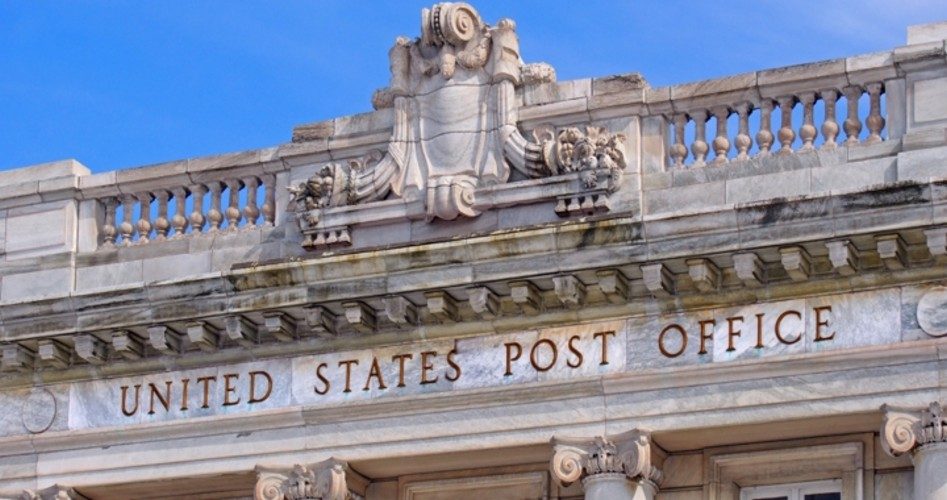
Two of America’s most prominent socialists, Senator Bernie Sanders (I-Vt.) and Representative Alexandria Ocasio-Cortez (D-N.Y.), have teamed up to create a “public option” for banking: having the U.S. Postal Service (USPS) offer banking services to low-income Americans.
“We should have a not-for-profit public option for basic banking services, and we should be piloting these projects through the U.S. Postal Service,” Ocasio-Cortez said in announcing the legislation she and Sanders are proposing.
That legislation would also impose a 15-percent cap on credit card interest rates. That, in turn, would likely make it impossible for many poor people to obtain cards, forcing them to turn to even riskier ways of getting money when they need it most.
Perhaps recognizing this — but unwilling to reconsider their business-bashing bill — Sanders and Ocasio-Cortez want the USPS “to offer affordable and basic banking services,” as Sanders explained in a Medium.com post. Among the services they envision the USPS offering: checking and savings accounts, low-interest loans, debit cards, automated teller machines (ATMs), check cashing, and money transfers.
“This is not a radical idea,” claims Sanders. He points out that most postal services around the world offer some banking services, which are utilized by 1.5 billion people, an argument with about as much depth as an advertising slogan. (“Millions of socialist-bank customers can’t be wrong!”) He also notes that the Post Office offered savings accounts from 1911 to 1966 but neglects to mention that it stopped doing so because it had lost so many customers to private banks in the post-World War II era.
There is one major practical problem with the Sanders/Ocasio-Cortez scheme: The USPS doesn’t want and can’t afford to take it on.
A December Treasury Department task force report concluded: “Given the USPS’s narrow expertise and capital limitations, expanding into sectors where the USPS does not have a comparative advantage or where balance sheet risk might arise, such as postal banking, should not be pursued.”
Meanwhile, the USPS is hemorrhaging red ink, having posted losses for at least 12 consecutive years. In 2018, the agency lost $3.9 billion, up from $2.7 billion the year before, despite increases in revenue and package volume. It has defaulted on over $40 billion in payments to its retiree health-insurance plan.
Even assuming the USPS could do what Sanders and Ocasio-Cortez want, it would still be a bad idea, particularly when it comes to making low-interest loans to people who present high risks for default. Taxpayers would almost certainly be expected to make good on any loans that were not repaid or else the USPS could never afford to take such risks. This, of course, is the precise recipe for the 2008 financial crisis — the one Sanders, Ocasio-Cortez, and their compadres still blame on the free market.
There are other reasons to be concerned about the USPS banking proposal, notes the Federalist’s Warren Henry:
When Ocasio-Cortez and Bernie call for a “public option” in banking, it is useful to consider what this term meant when the left was calling for a “public option” in the context of Obamacare. That proposal was a recipe for unfair competition to eventually drive private insurers out of business. Given the history of postal banking in America and the decline of the Postal Service since, creating a “public option” for banking would likely require giving the government unfair advantages.
Moreover, less than a decade after passing Obamacare, prominent Democrats — led largely by Ocasio-Cortez and Bernie — are already calling for a single-payer health-care system. When the socialists are pushing for a “public option” again, it looks like a prelude to nationalization of the financial sector.
Let’s hope Congress sees the Sanders/Ocasio-Cortez postal-banking legislation for what it is — a bill that creates more problems than it allegedly solves — and scrawls across it, “Refused — return to sender.”
Photo: peterspiro/iStock/Getty Images Plus



